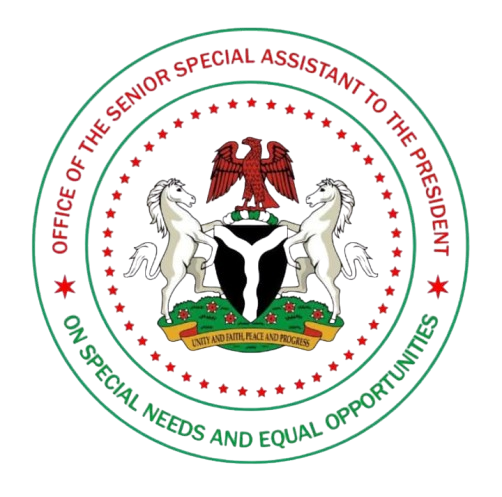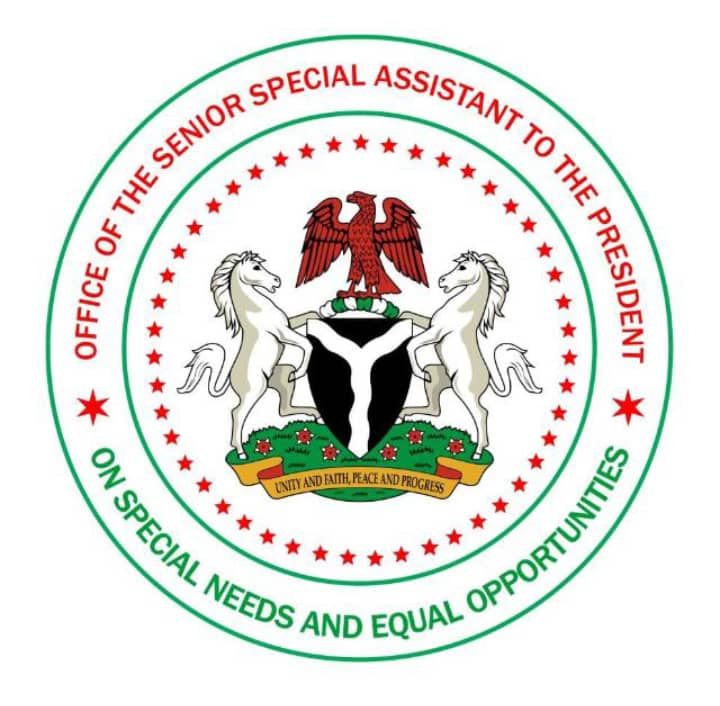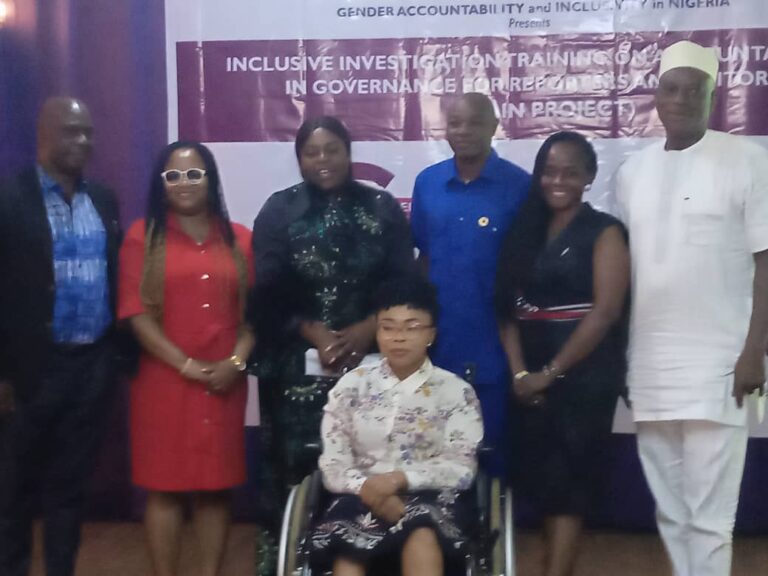By Lanre Oloyede
Gender and Disability advocacy group, Gender Strategy Advancement International (GSAI) has warned both private and public institutions in Nigeria that are yet to comply with the provisions of the Disability Act 2018 to brace up for legal actions as the five-year transition allowed for implementation expires by January 2024.
The group gave the warning Monday in Abuja at a one-day capacity training program organized for reporters and editors with the aim of using the tool of media to promote gender accountability and inclusivity nationally.
Recall that former President Muhammadu Buhari had in 2018 signed into law, the Discrimination against Persons with Disabilities (Prohibition) Act with a five-year transition period to allow both private and public institutions comply with the provisions of the Act by redesigning their buildings to allow unaided access for Persons with Disabilities.
The bill which had lingered in the National Assembly for 18 years, seeks to criminalise discrimination against persons with disabilities.
The Act prohibits all forms of discrimination against persons with disability. If an individual is found violating this law, he/she will pay a fine of N100,000 or a term of six months imprisonment.
The training with the theme: ‘Inclusive Investigation Training on Accountability in Governance for Reporters and Editors’ was organized by Gender Strategy Advancement International (GSAI) in collaboration with Open Society Initiative for West Africa (OSIWA) with funding by Gender Accountability and Inclusivity in Nigeria (GAIN).
According to the organizers, the objective is to use media advocacy as a tool to hold government accountable to women and Persons with Disability (PWDs) economic, political and to increase public awareness and sensitization.
In her welcome remarks, Executive Director GSAI, Mrs Adaora Sydney-Jack, noted that discrimination against women and Persons with Disability is prominent in different fronts in our society with one of the obvious ones being in appointments into public offices.
Mrs Sydney-Jack also noted that though it was not a deliberate attempt by the Nigerian media to exclude stories on women and disability but urged the media to do more to engage in meaningful discourse on issues bordering on gender and Inclusivity.
She implored the media to engage in inclusive reportage, by holding government accountable for this vulnerable group.
In his Special Remarks, the Chairman of Nigerian Union of Journalists, NUJ, FCT Chapter, Comerade Osaretin Patrick Osadebamwen, ably represented by his Vice, Mr Timothy Choji, urged journalists to exercise boldness and professionalism in becoming agents of change to bring about the needed reforms in the area of gender equality and Inclusivity.
“You are each selected for this capacity building training to become an army of change and advocate of gender inclusion, growth and development in Nigeria.
“The sessions are skewed to open your eyes and storytelling mind to see the lapses in genuinely designed policies and programme of government national or subnational that would need to be tweaked for good.
“You will not be asked to become antagonistic to the government but you would be carefully pointing out some issues that create a ceiling to better performance of the woman in your respective area of human endeavour. It is all about calling attention to these issues to be dismantled or improved on. This is our simple task and we hope to do this in our storytelling after today’s session.
“This may be considered anti-government by those who do not want this to happen. Do not be surprised that such profiteers may be women. Wherever it is so perceived. Know that such resistance to support your work arises from selfish interest which your inquest would diantle for the greater good,” the NUJ FCT Chairman stated.
Speaking at the event, one of the facilitators, Mr Dele Atunbi, who spoke on Gender Equality, The Benchmark of Constitutional Democracy, lamented the lacuna in the 1999 Constitution which renders chapter two non-justiciable.
Mr Atunbi maintained that the underlying cause of the suffering and neglect of women and Persons with Disability in Nigeria is a constitutional issue which could have been addressed by the chapter two of the Constitution.
He said though chapter two holds high promises for the people in terms of their social wellbeing, however the non-justiciability clause earlier deposited in Section 6(6)(C) of the 1999 Constitution renders the promises of no effect.
He noted that the ruling class is advantaged by this non-justiciability clause because Section 6(6)(C) takes away the ability and power of the citizens to make the government accountable for the promises in Chapter 2 which indeed is the basic dividend of democracy.
“It is wrong for us not to ensure that women’s right are enforced and protected. To achieve this, we must ensure that chapter 2 is justiciable.
” As media, we should advocate for the justiciability of chapter 2 of the Constitution,” Mr Atunbi said.
Also speaking, Mrs Sussan Kelechi Ihuoma, a Gender and Inclusion advocate, harped on the need to remove all environmental and attitudinal barriers to accessibility by PWDs.
She tasked the media on the use of right terminologies and empathy in reporting issues bordering on Gender Equality and Inclusivity.
END Xxxxxxxxxxxxxxxxxxxxxxxxx


